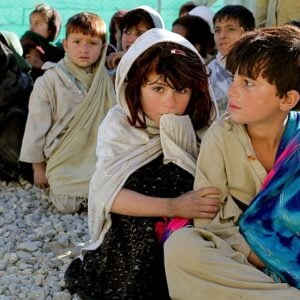In Guatemala, chronic malnutrition continues to pose one of the country’s most pressing challenges, with 46% of children under the age of two suffering from it. This alarming rate means that nearly half of Guatemalan children face compromised physical, cognitive, and economic development even before beginning school, placing Guatemala among the most affected countries in the world. Addressing this crisis requires comprehensive interventions that begin during pregnancy and extend through the early years of childhood. Adequate nutrition and access to safe water are vital not only for a child’s survival but also for their future opportunities in education and employment, which are essential for building a strong and productive society.
In some of Guatemala’s poorest departments—Alta Verapaz, Chiquimula, Huehuetenango, Quiché, San Marcos, Sololá, and Totonicapán—health workers, midwives, educators, and nutritionists are focusing efforts on the critical first 1,000 days of life. The Crecer Sano Project, supported by the Government of Guatemala and the World Bank, plays a pivotal role in strengthening health and nutrition services in these regions. Exclusive breastfeeding during the first six months of life is strongly promoted, with local nutritionists emphasizing its unmatched benefits for growth and immunity. Encouragingly, a 2024 survey showed that 70% of children in participating departments were exclusively breastfed for their first six months, surpassing the national target and showing notable progress compared to previous years.
Alongside breastfeeding promotion, the project prioritizes regular monitoring of children’s growth. Monthly tracking of weight and height allows early detection of malnutrition and timely intervention, especially where healthcare access is limited. Health professionals stress that children who reach their full growth potential in their early years are less likely to suffer from diseases that hinder development. Mothers are also guided on proper nutrition during pregnancy, ensuring that newborns have a healthier start. Community testimonies highlight how this support has helped families better understand the importance of proper nutrition and avoid harmful practices, such as feeding children candy and soda as their first foods.
Education and community participation form a central part of the project’s strategy. Midwives have become key breastfeeding promoters, while more than 2,000 primary healthcare workers have been trained to provide counseling on nutrition, hygiene, and early childhood stimulation. These culturally sensitive and community-driven approaches ensure that families receive practical guidance and consistent support through home visits, workshops, and counseling sessions.
The impact of these interventions goes beyond improved child health. Investing in proper nutrition from early childhood contributes to better school performance, higher retention rates, and increased chances of securing decent employment later in life. By equipping children with a healthier start, Guatemala is also laying the foundation for stronger human capital and greater national productivity. As health workers emphasize, well-nourished children are not only healthier individuals but also future adults capable of driving the country’s development.







